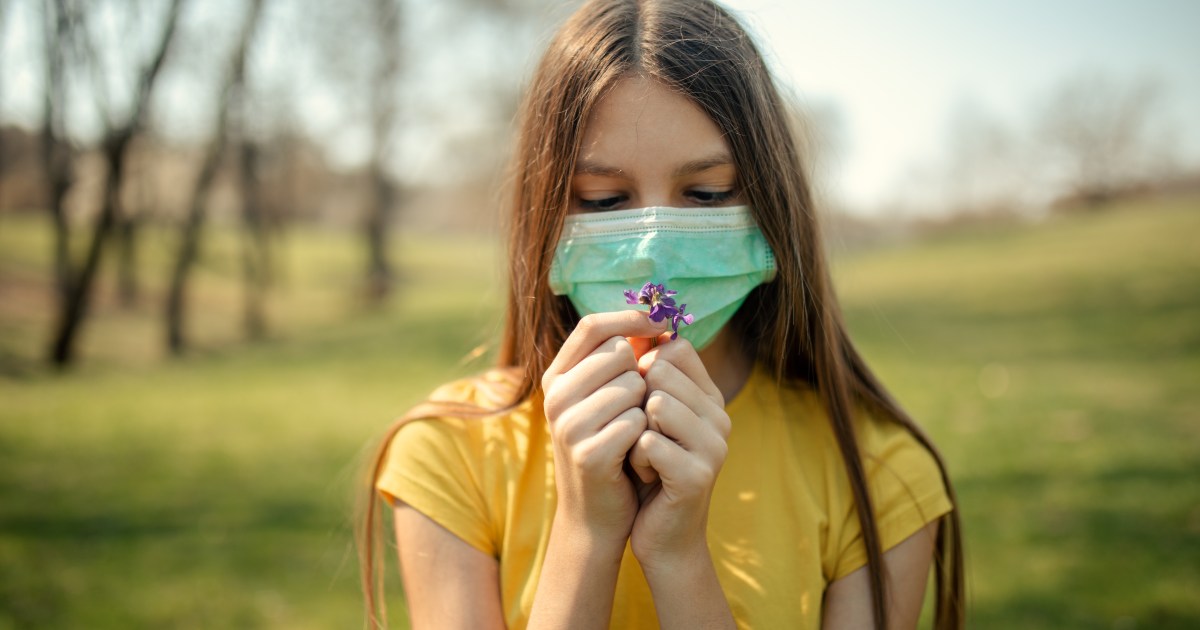Have you been diagnosed with the emerging coronavirus, which causes Covid-19 disease?
Here are tips to help you on your illness recovery journey.
First of all, we wish you and everyone safety, wellness and permanent recovery, but if you happen to be infected with the Coronavirus, this may pose a challenge to your body in the short and long term, so you must take into account some things.
First of all, if you suspect you have coronavirus, call the emergency number in your country and follow the instructions.
If you have been diagnosed with the infection, you must follow the doctor's instructions, as he may ask you to quarantine yourself at home for a certain period (for example 10 days, and this depends on the health recommendations of your country), or admit you to the hospital.
The information that we will provide you here is for people who have passed the critical stage of infection with COVID-19 and are recovering from the disease.
This information is not a substitute for consulting a doctor or following his instructions.
If you have stayed in the hospital, when you are discharged, you may have a treatment plan or a program of physiotherapy sessions.
Follow your doctor's instructions.
According to the University Hospitals of Derby and Burton NHS Foundation Trust, the post-infection effects of Covid-19 (Post-COVID-19 effects) may include:
1- Muscle weakness.
2- Joint stiffness.
3- Extreme fatigue and decreased energy.
4- Loss of appetite.
5- Weight loss.
6- Sleep problems.
7- Problems with mental abilities, for example the inability to remember some events, think clearly and forget.
8- Mood changes such as anxiety or depression.
9- Nightmares.
10- Post-traumatic stress disorder, which is a disorder that affects some people who have gone through a traumatic, frightening, or dangerous event or experience (Post-traumatic stress disorder).
For its part, the Chartered Society of Physiotherapy says we are still learning a lot about Covid-19, and one thing we know for sure is that the path to recovery is not always straightforward.
"Don't be anxious or frustrated if it takes some time to regain your energy and fitness," the association adds.
The association provides the following tips to aid in the recovery journey:
1- While rest is important to recovering, it is also imperative that you be as active as possible to rebuild your strength.
This will also help your lungs recover.
2- It is common for energy levels to be lower after a period of illness, so it is important to start rebuilding your routine and activities slowly.
To get started you may need to prioritize the tasks that you want to accomplish each day, so choose the goals that are important to you to achieve.
For example, some people find it important to dress up every day, while others may want to get up and make a cup of tea.
3- Organize your activity throughout the day, and take a break between tasks if you need to.
For example, take a shower and then rest to allow your breathing to stabilize before dressing.
4- Finding a balance between activity and rest may take some time to become well, but building a daily routine can help you feel better.
Try not to rush or push yourself too hard, and don't feel discouraged if you experience a setback.
5- If you are doing activities that make you feel short of breath, try to breathe before exerting an effort, then breathe during this effort.
6- Try pursed lip breathing: Breathe gently through your nose, then bandage your lips as if you were blowing bubbles or blowing into a candle, and exhale through your closed lips.
7- Your shortness of breath should improve over time.
If you feel it is not like this, or it gets worse, seek medical help.
8- Exercise, as it helps you to become stronger and more active, which will help you recover from Covid-19.
Consult medical staff about the exercises that are right for you.
9. Stay motivated. Think about what activities you find difficult now and what you would like to do in the future.
Set yourself small goals and keep a record of them.
10- If you feel that your energy levels are not returning to after an injury, or that the activity is making you feel much worse, talk to your doctor or physical therapist and ask him to evaluate you.
According to the website of Covid Patient Support of the National Health Foundation in the United Kingdom (COVID-19: Supporting your recovery), some Covid patients may have difficulties swallowing and drinking after infection, and therefore they advise the following:
1- Sitting in complete moderation while drinking or eating (sitting upright).
2- Eating or drinking at a slow pace.
3- If you feel short of breath or tired, eat small amounts several times throughout the day, not three meals.
4- Try to eat soft foods that need less chewing.
5- If you follow these tips but still have trouble swallowing, or you have cough or choking when eating food or drinking liquids, see your doctor.
The site also offers oral care tips:
1- Brushing the teeth twice a day using toothpaste.
2- Drink plenty of fluids in the form of sips throughout the day.
3- If you wear dentures, remove them and clean both the dentures and your mouth twice a day and take them off always at night.
4- Use lip balm if your lips are dry.
5- If you follow the advice mentioned above and your mouth is still dry, contact a doctor.

